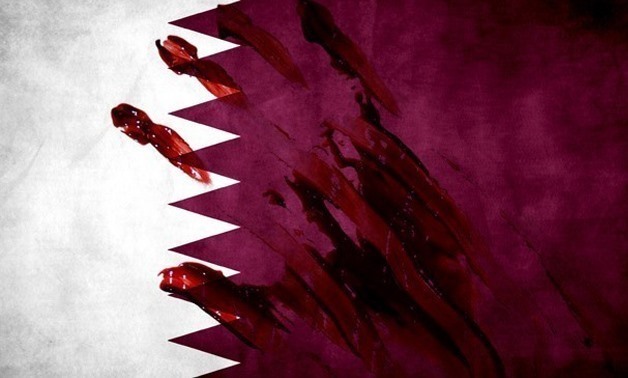
FILE - Qatari flag
CAIRO – 8 December 2017: An Indian driver who works in Doha has alleged that he was beaten by his Qatari employer for returning to work late after his leave, according to Indian Express website.
The Qatari employer filed a complaint against Mohammed Imran Ali Khan, a resident of Jahanuma in the Phool Bagh area, for damaging his car.
Doha Police arrested Khan on the night of December 2 and has since been in their custody.
Qatar is home to 630,000 Indian nationals, the single largest group of migrants in the country of 2 million. Many work in low paid construction jobs, building stadiums and other infrastructure for the 2022 World Cup.
In March, Amnesty International stated that migrants faced abuses that in some cases amounted to forced labor. Workers reported squalid living conditions, having their salaries withheld for months and their passports confiscated by employers.
Qatar’s disrespect for human rights has been clearly revealed in the treatment of migrant construction workers in the building of the stadium for the 2022 World Cup.
Foreign and Arab newspapers disclosed the harsh conditions and unjust practices that were imposed on domestic workers in Doha.
The Carbonated News website revealed the existence of about 4,000 migrants at risk of death due to the denial of humanity and the lack of Qatari officials’ mercy. It stated that those migrants work in harsh summer temperatures to build new stadiums.
The newspaper, Construction Week Online, described the workers' situation in Qatar as "non-humanitarian" and pointed out that the Qatari government has no "mercy" because it treats the workers as "slaves.”
The Saudi Okaz newspaper published a report earlier detailing the tough conditions and long working hours from which the migrant workers suffer.
According to Aliqtisadi, a Saudi Arabian news website, foreign workers in Qatar declined by 6.2 percent in the second quarter of 2017 after its support for terrorism was established.
Qatar’s relations with several Arab and Gulf states have been strained since May 24, when a Qatari state-run news agency reported Sheikh Tamim bin Hamad Al-Thani’s statements regarding the Gulf foreign policy with Iran, which described it as “unwise.”
On June 5, 2017, several countries, including Egypt, Bahrain, Saudi Arabia and the United Arab Emirates, severed diplomatic ties with Doha over accusations of Qatar backing and funding terrorist groups.
On June 23, 2017, the four Arab states had 13 demands of Qatar, which were presented by Kuwait, the mediator in the crisis. The demands included that Qatar shut down Al-Jazeera TV network, cut diplomatic ties with Iran, stop financing and supporting terror groups, including the outlawed Muslim Brotherhood, and end Turkey's military presence in Doha.

Comments
Leave a Comment